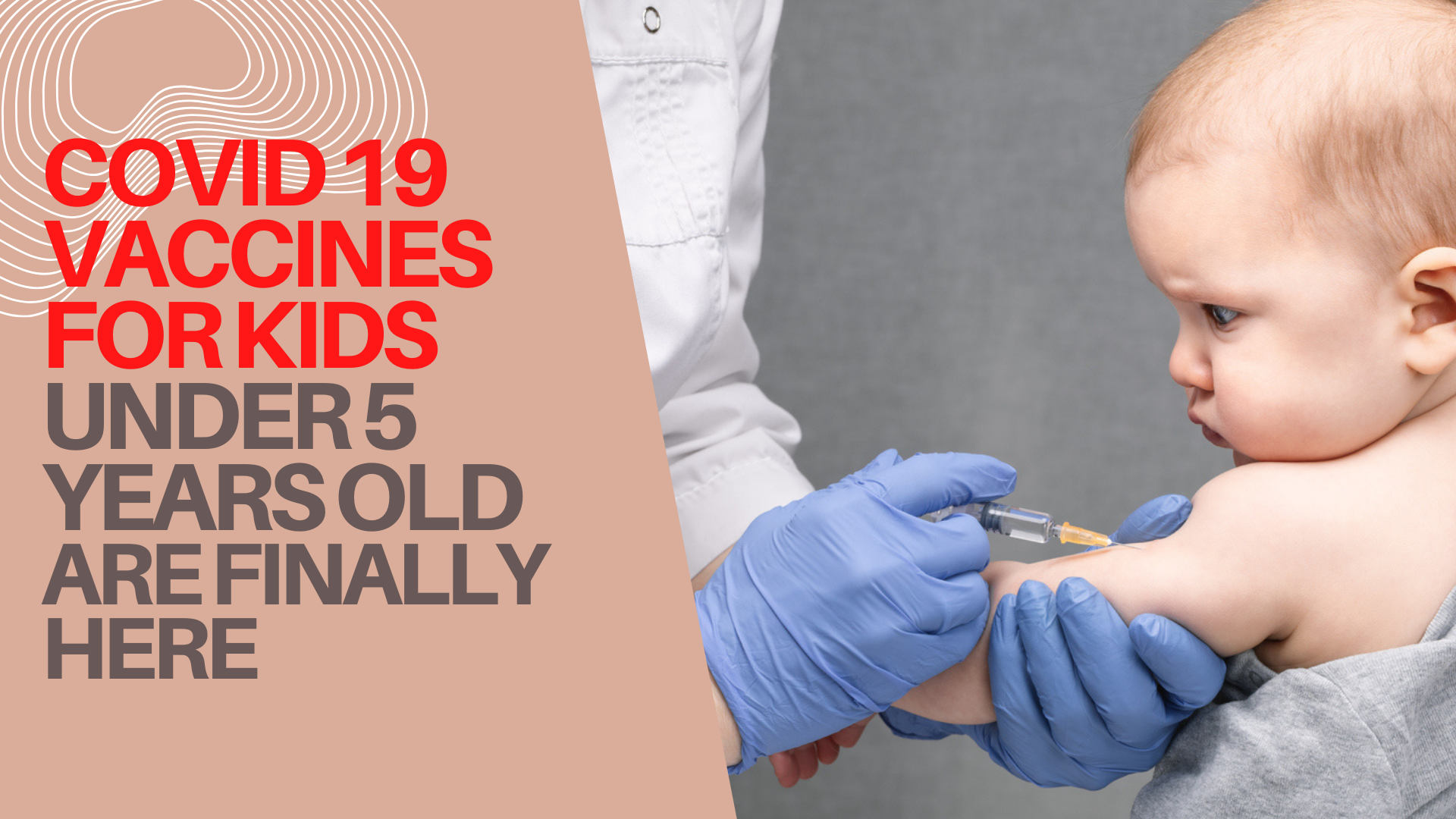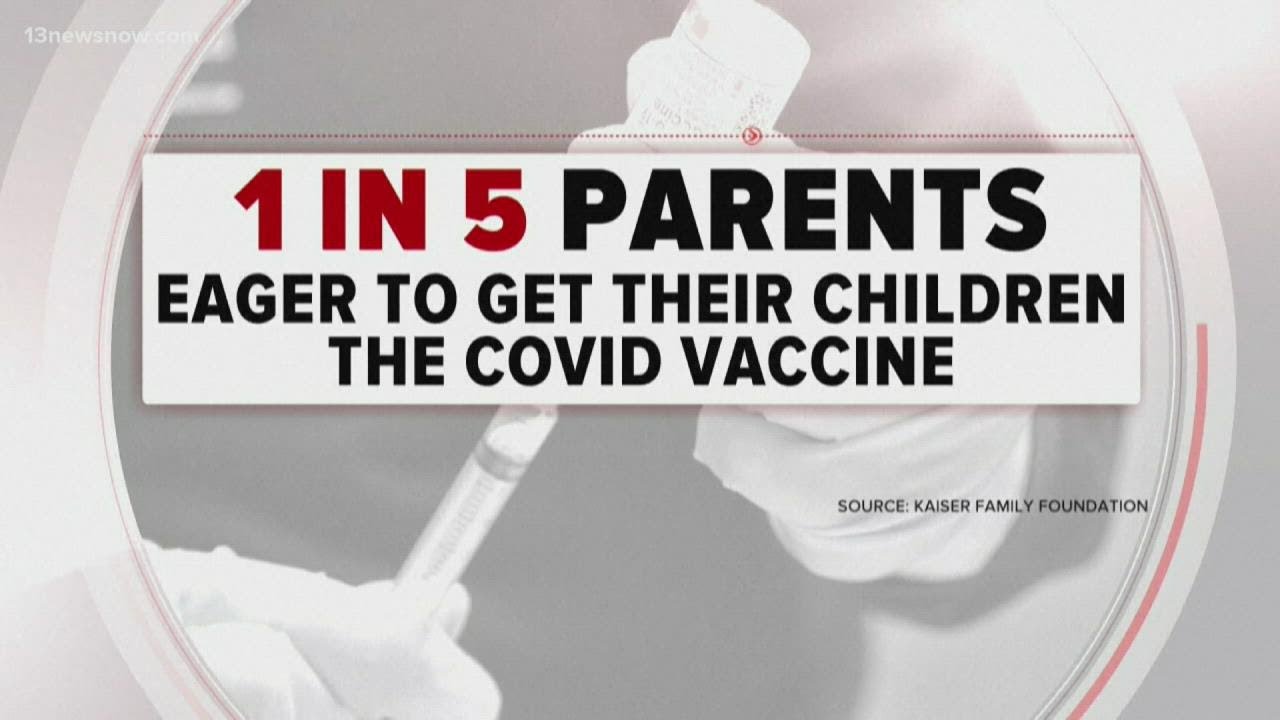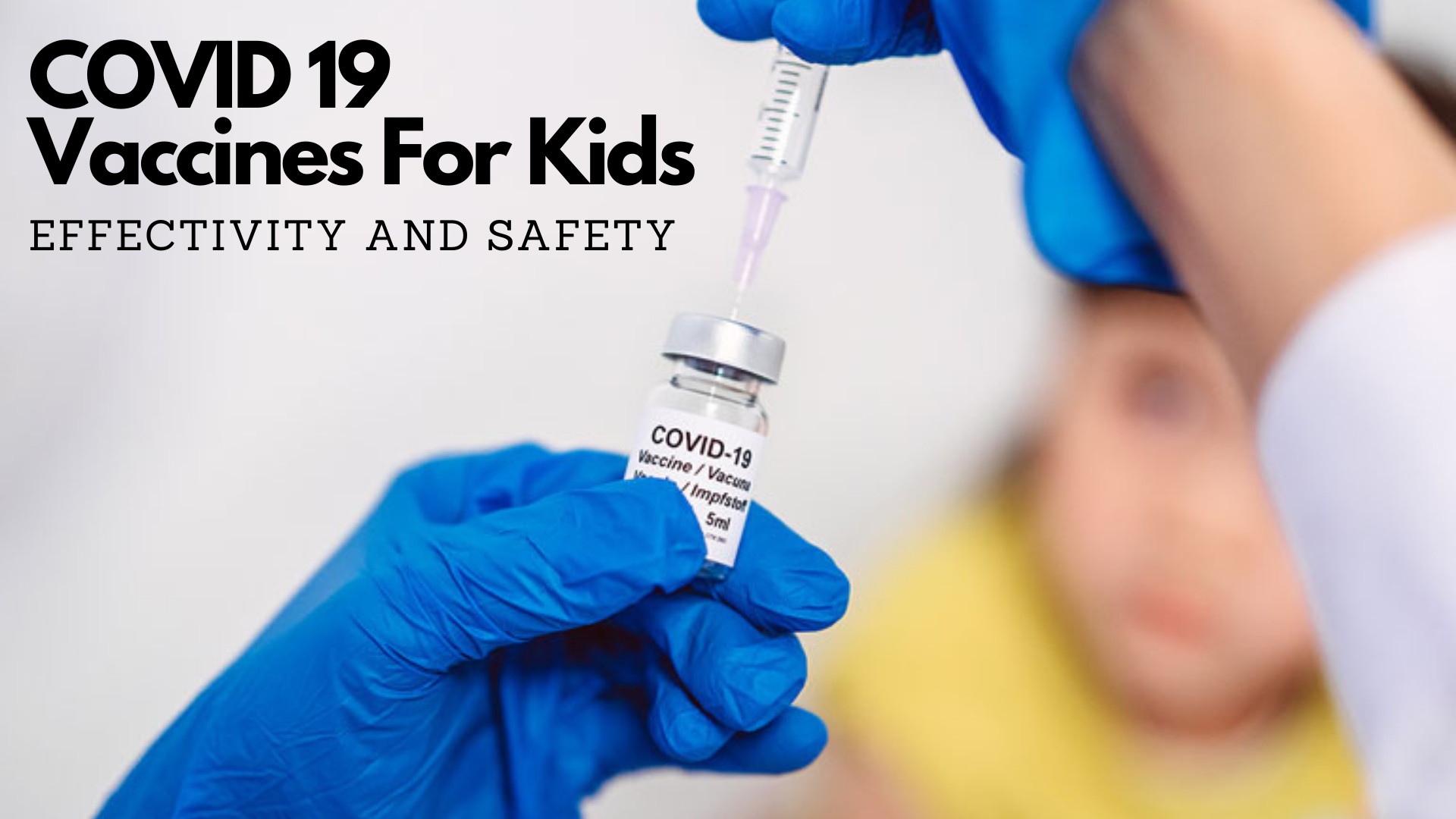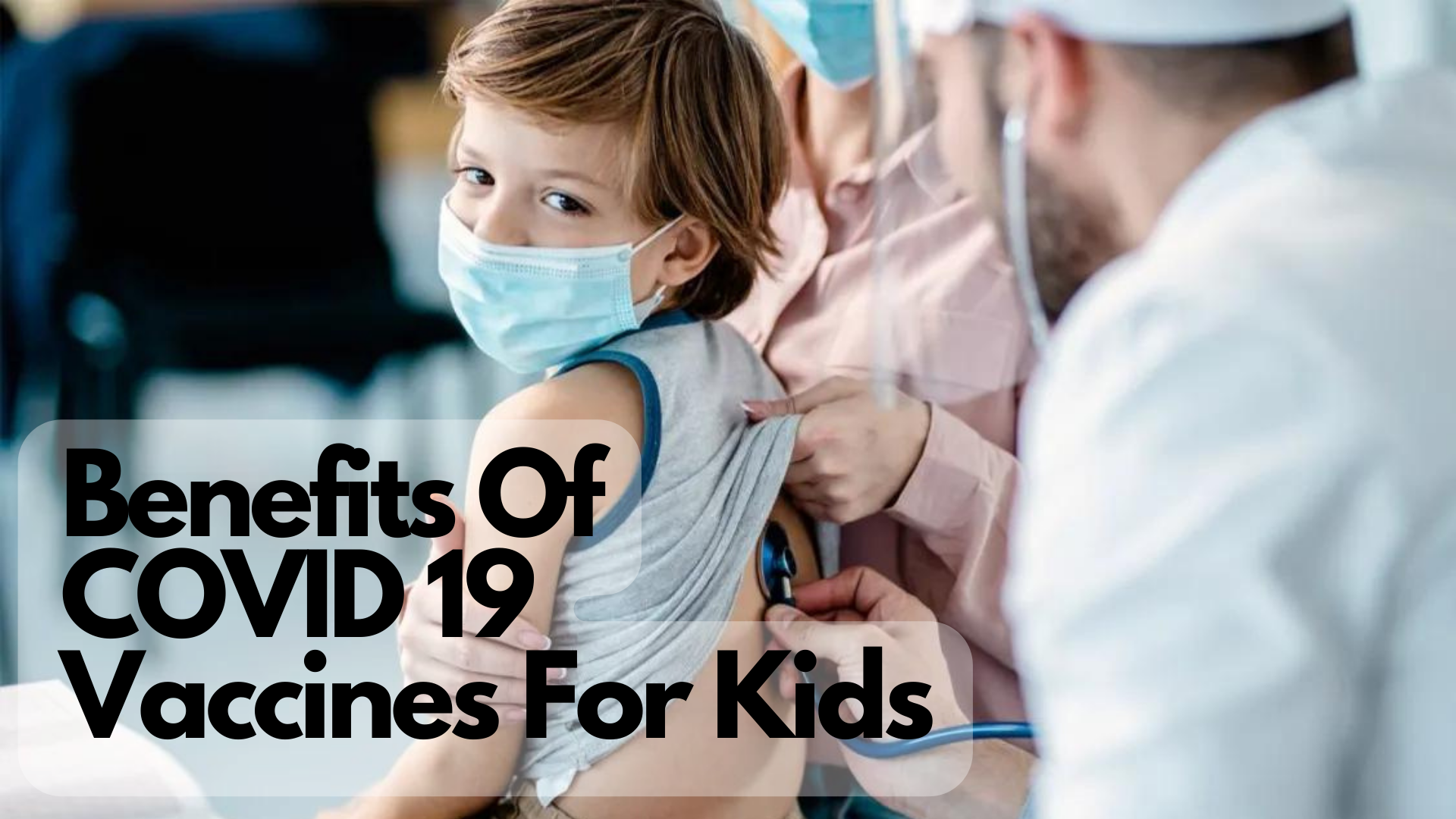COVID Vaccine For Kids Under 5 Years Old Are Finally Here
COVID vaccines for kids under the age of five will be available in the United States beginning Tuesday, marking a significant milestone in the country's fight against the disease.
Author:Hajra ShannonReviewer:Paula M. GrahamJun 26, 2022205 Shares20.4K Views

COVID vaccine for kidsunder the age of five is now available in the United States beginning June 21, 2022 marking a significant milestone in the country's fight against the disease.
According to recent polling data, 18 percent of parents said they would vaccinate their young child right away, 27 percent said they would definitely not, and 38 percent said they would wait and see.
The coronavirus has proven to be less dangerous for children, than for older adults, but that doesn't make it safe. More than 200 children aged 1-4 have died as a result of COVID, and 20,000 have been hospitalized.
Over the last two and a half years, up to 68 percent of American preschoolers have been infected, missing out on social and learning opportunities and passing the virus on to parents, grandparents, and caregivers.
Families are relieved that coronavirus vaccines for children under the age of five have been approved, more than a year after the shots were approved for adults.
COVID Vaccine For Kids - Pandemic Fight Milestone

CDC approves COVID-19 vaccines for kids under 5
The Centers for Disease Control and Prevention approved the Food and Drug Administration's recommendations on June 18, 2022, Saturday, ensuring that two long-awaited vaccines will be available for young children starting this week.
The Moderna vaccine is approved by the FDA for a two-dose primary series, with doses given four weeks apart at 25 micrograms each, to infants and children aged six months to five years.
The Pfizer/BioNTech vaccine is now available in a three-dose primary series at 3 micrograms per dose for infants and children aged 6 months to 4 years.
The vaccine is given in a two-dose primary series at 10 micrograms per dose for children aged 5 to 11, and 30 micrograms per dose for adolescents and adults aged 12 and up. Completing the Pfizer/BioNTech vaccine series takes longer because the first two doses are given three weeks apart, followed by the third dose eight weeks later.
The CDC recommends two options for children who may reach the age of 5 while completing their Pfizer/BioNTech vaccine series.
The child could complete the two-dose primary series authorized for children ages 5 to 11 or the three-dose series for younger children, but doses 2 and 3 could be either the dosage for younger children or the dosage for children ages 5 to 11.
The FDA's Vaccines and Related Biological Products Advisory Committee determined that the benefits of both vaccines outweighed the risks and that the vaccines were "well-tolerated" in clinical trials among the children who received them.
According to clinical trial data, the most common side effects of both vaccines are injection site pain, headache, fever, chills, and fatigue. The vaccines appeared to elicit comparable immune responses in children as they had in adults.
COVID Vaccine For Kids - Effectivity And Safety
COVID vaccine for kids has been shown in studies to elicit the same level of immune response in protected older children and adults.
The shots were effective in preventing severe disease and death, but not in preventing infection. The same is probably true for younger children.
COVID vaccines are not required for children to attend school, so every family must decide whether to vaccinate their young children.
Vaccines, according to data, reduce the small risk of developing severe disease and the even smaller risk of death from COVID in this age group.
Children who have a preexisting health condition, such as diabetes or an autoimmune disease, are likely to be at a higher risk for severe disease, though approximately half of the young children hospitalized with COVID had no preexisting health problems.
During a major outbreak, such as the one caused by the omicron variant of the coronavirus in the early weeks of this year, the risk of serious infection rises.
According to FDA data, older children and teenagers who were vaccinated during that outbreak were less likely to suffer from severe diseases than their peers who were not vaccinated.
Moderna and Pfizer-BioNTech studies found the vaccines safe for children under the age of six, with no severe allergic reactions or heart muscle swelling – both of which are rare but potential side effects in older children and adults.
Benefits Of COVID Vaccine For Kids
The vaccine protects children against COVID. Although COVID is sometimes milder in children than in adults, some children infected with the coronavirus can develop severe lung infections, become very sick, and require hospitalization.
This is especially true given the delta variant, which is more contagious than other coronavirus variants.
Furthermore, the vaccine aids in the prevention or reduction of COVID transmission: children, like adults, can transmit the coronavirus to others even if they are asymptomatic.
Getting the COVID vaccine can protect the child and others by lowering the likelihood that they will spread the virus to others, including family members and friends who may be more vulnerable to the infection's severe consequences.
Getting vaccinated against COVID can help prevent the spread of other variants. COVID cases in children are increasing, and the delta variant appears to be involved. Getting vaccinated reduces viral transmission as well as the virus's ability to mutate into new variants that may be even more dangerous.
However, the virus can easily spread between unvaccinated children and adults, allowing new variants to emerge. Fewer overall infections in the population mean a lower risk of severe infection and death in the community, as well as the emergence of dangerous coronavirus variants.
People Also Ask
What Are The Common Side Effects Of COVID Vaccines?
Expected vaccine side effects such as headache, fatigue, muscle and joint pain, fever and chills, and pain at the injection site are the most commonly reported events with COVID vaccines. These adverse events are consistent with what is already known about the vaccines from clinical trials.
What Are The Psychological Effects Of COVID On Children?
Worry, anxiety, and fear are common in children, and these can include fears that are very similar to those experienced by adults, such as a fear of dying, a fear of their relatives dying, or a fear of what it means to receive medical treatment.
How Do Vaccines Prevent Diseases In General?
Vaccines imitate the virus or bacteria that cause disease, causing the body to produce antibodies. Once a person is infected with the disease-causing virus or bacteria, these antibodies will provide protection.
Conclusion
COVID Vaccine for kids are indeed a breakthrough in our fight against the pandemic. The government has already begun preparing for the vaccine expansion, ordering millions of doses for distribution to doctors, hospitals, and community health clinics across the country.
Around 18 million children will be eligible. More children will be protected, and virus transmission will be more tightly controlled, potentially bringing the pandemic to end.

Hajra Shannon
Author

Paula M. Graham
Reviewer
Latest Articles
Popular Articles

